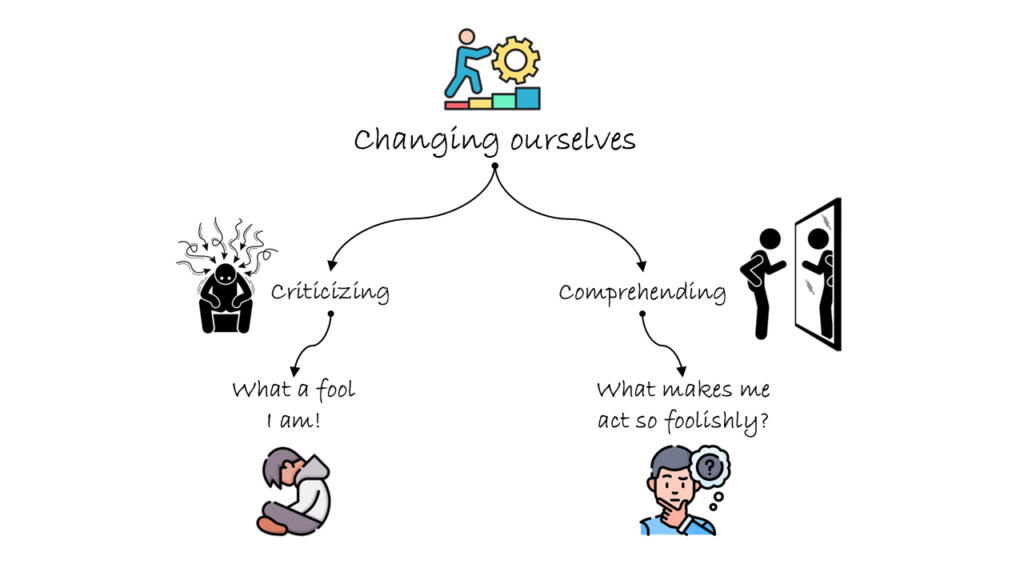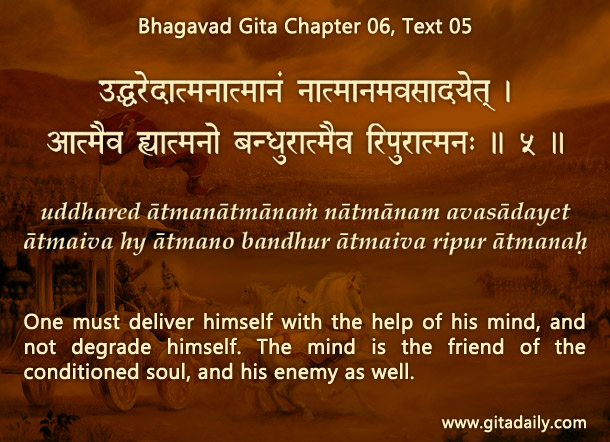
We often emphasize the importance of healthy relationships with others, but even more crucial is having a healthy relationship with ourselves. In a healthy relationship, we grow closer to the other person through mutual understanding and become better through the association. Conversely, an unhealthy or toxic relationship causes distance and degradation.
The same dynamics apply to our relationship with ourselves. The Bhagavad-Gita (6.5) advises us to elevate ourselves with our own effort and not degrade ourselves. To achieve this, we must build a positive, elevating relationship with ourselves.
While we may be aware of our faults, harshly condemning or castigating ourselves only fosters an unhealthy relationship. Instead, it’s essential to develop patience and curiosity, striving to understand the origins of our shortcomings, the circumstances leading to them, and the thought processes behind them.
This understanding approach promotes sustainable self-transformation. Transformation driven by brute willpower often leads to relapses, while transformation rooted in self-understanding addresses core issues and creates lasting change.
Summary:
- Just as we avoid unhealthy relationships with others, we must avoid one with ourselves by fostering patience and understanding instead of harsh criticism.
- Condemnation leads to degradation, while curiosity and patience enable substantial and sustainable self-transformation.
- A constructive attitude toward ourselves focuses on understanding and gently guiding ourselves toward improvement.
Think it over:
- How can you identify whether your relationship with yourself is unhealthy?
- Reflect on a long-standing shortcoming—has your attitude toward yourself been overly critical about it?
- How can you replace self-criticism with curiosity to foster self-transformation?
***
06.05 One must deliver himself with the help of his mind, and not degrade himself. The mind is the friend of the conditioned soul, and his enemy as well.


Leave A Comment